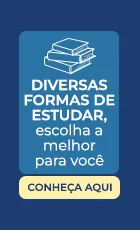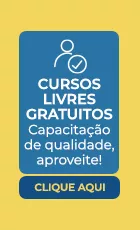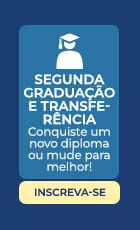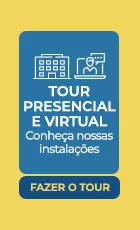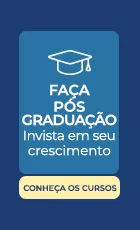1.International Material Flow Management – IMAT
Universidade Positivo and Trier University of Applied Sciences Dual Degree Program: International Material Flow Management (IMAT)
ABOUT THE IMAT PROGRAM
IMAT is a dual-degree program managed jointly by UP and the Institute of Applied Material Flow Management (IFaS), an innovative research institute of the Trier University of Applied Sciences (Germany). Students will spend their first year studying at UP and the second year at the Zero-Emission Campus Birkenfeld in Germany.
The program offers integrated knowledge in engineering, economics, law natural, and social sciences. In addition to the learning goals of the Sustainability Science division, IMAT offers multidisciplinary courses to prepare students to become young professionals in zero emission systems design with profound knowledge in renewable energy, integrated water resource management, and other sustainable community development areas. Students will also have the opportunity to conduct field work and internships in both Brazil and Germany. IMAT students will submit one master’s thesis to both UP in Brazil and IfaS in Germany. Upon completion of the program, students receive two master’s degrees, a Master of Science (M.Sc.) in Environmental Management (from UP) and a Master of Engineering (M.Eng.) in International Material Flow Management (from Trier University of Applied Sciences).
A noteworthy aspect of this approach is that IMAT-M.Eng. is offered to and open to all potential students notwithstanding their non-natural-science-based baccalaureates—such as economics, social & political sciences, etc.
The Graduate Program in Environmental Management (PPGAMB) of Universidade Positivo and the IMAT Program of the Trier University of Applied Sciences together represent what the future of higher education should look like, applied and multidisciplinary with a focus on sustainability. Both programs have faculty from a diverse range of areas of science together with other IMAT network universities around the world, students are provided the opportunity to study and learn across various cultural settings.
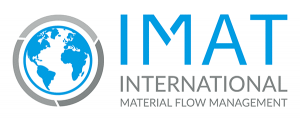
PROGRAM INFORMATION
| Degree | Master of Science in Environmental Management (from UP) Master of Engineering in International Material Flow Management (from Trier University of Applied Sciences) |
| Program Duration | 2 Years |
| Enrollment Semester | Open Admissions |
| Total Tuition | R$79,200 (36 installments of R$2,200). |
| Administration Fee in Germany | 172 Euros per semester (344 Euros total) *Amount subject to change. |
| IMAT in Brazil | https://www.imat-master.com/study-programs/imat-in-brazil/ |
APPLICATION INFORMATION
| UP Enrollment Page | Link |
| PPGAMB Course Page | Link |
SUBJECTS
Students take Environmental Management subjects and a selection of IMAT subjects such as:
-Global Environmental Challenges and Green Business Opportunities
-International Policies, Strategies and Case Studies on Circular Economy
-GHG Mitigation in Industry and Society: Technical and Economical Aspects of Climate Protection
SAMPLE THESIS TOPICS
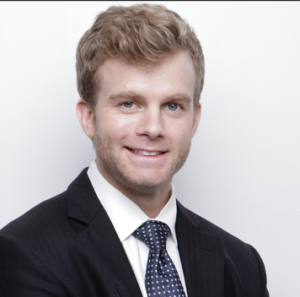
John James Loomis (United States) Graduate of the Universidade Positivo and Trier University of Applied Sciences Dual Degree Program: International Material Flow Management (IMAT)
-Integrated quantification of forest total economic value;
-Current Situation and Challenges of Biomass Town: Case Study of Hita City, Japan;
-Waste–To–Wealth Potentials Of Municipal Solid Waste: The Case Of Ga-East Municipal Assembly, Ghana;
-Measures for Scarce Water Resource in Fukuoka City, Japan;
-Off-Grid RET Barriers and Supports in Developing Countries with Case Study of Solar Home System in Cambodia;
The dual degree program between Universidade Positivo (UP) and Trier University of Applied Sciences (TU) helped me develop a greater appreciation of systems approaches to the multidimensional challenges of sustainable development. The program offers two diverse settings that challenge candidates to develop both the hard and soft skills required to develop innovative solutions to environmental management problems such as material flow analysis and zero emissions concepts. At UP in Brazil the faculty and classes are truly multi- and interdisciplinary spanding the breadth of environmental sciences, environmental law, sustainable waste management, sustainable water management, environmental economics, quantitative and qualitative data analysis, in addition to other offerings. While at TU in Germany, the classes had a heavy focus on field visits to circular economy designed public and private facilities such as solid waste or “resource” management centers and energy independent villages. Together the dual program helped me develop my technical and intercultural skills necessary to excel in the global workforce.
IMAT Program Course Model
COURSE MODEL
At UP the IMAT Program is housed in the Graduate Program in Environmental Management (Programa de Pós-Graduação em Gestão Ambiental – PPGAMB). As such, the completion requirements for the IMAT portion of the program are compatible with those of the PPGAMB program. Students from PPGAMB who wish to participate in the IMAT program after enrolling should consult the PPGAMB coordinator.
UP/IMAT students must submit a master’s thesis to both institutions. Further details regarding thesis topic and report requirements will be provided during by students’ advisors.
Course Structure
The program consists of 15 modules and 1 Master thesis module.
First Year: Courses taught at UP by UP faculty members and IMAT partner faculty via e-learning.
Second Year: Courses taught at TU by IMAT faculty and IMAT partner faculty via e-learning. Specification courses (or internships) during the third semester and graduation thesis work during the fourth semester at TU.
Example…
| First Semester | Second Semester | Third Semester | Fourth Semester |
| Global Environmental Challenges and Green Business Opportunities | Sustainability Management in Industry | Regional Material Flow Management | Master Thesis |
| Business Planning for Engineers | GHG Mitigation in Industry and Society | Integrated Water Resource Management | |
| Research Management and Applied Material Flow Management | Internship / Practice Material Flow Management Research Project | Sustainable Energy Systems | |
| International Policies, Strategies and Case Studies on Circular Economy | Industrial Ecology and Industry 4.0 | Technical Aspects of Bio-Economy and Resilient Societies | |
| Elective (e.g., Natural Sciences) | Elective | Elective (e.g., Traveling University) |
| Module Descriptions | ||
| Number | Name | Content |
| M1 | Global Environmental Challenges and Green Business Opportunities | This module offers students an in-depth learning opportunity about the system inter-action of ecosystems in order to understand that issues such as inefficiencies and waste/emission problems are non-existent in functioning ecosystems but inherent to man-made systems. A spectrum of diverse and interrelated topics presents the fundamentals of the complex concepts as follows. |
| M2 | Business Planning for Engineers | In terms of value-orientation, this course focusses on financial analysis as an instrument for assessing and reconciling green business investment projects on the basis of micro-economic modelling and regional added value forecasts. |
| M3 | Research Management and Applied Material Flow Management | This is a refresher course on the principles of scientific method, academic writing and communications. A key objective is to help students plan/prepare for their research undertaking and the subsequent synthesis of the master thesis. As a requirement of this module, the students will continuously and in a stepwise manner work on their research and on their master thesis. Regular webinars will also be conducted as the need be to include all students from the IMAT-NU partner universities. IMAT-NU faculty that includes well published and reputed professors will coach the students in this endeavor throughout the course. A third of the module includes theoretical work whereas the remainder is dedicated to hands-on praxis of technical/academic writing and other forms of communications. |
| M4 | International Policies, Strategies and Case Studies on Circular Economy | The IMAT-NU partners/international partners provide 2 SWH lectures each, plus a session for Q&A. The lectures include an introduction to country-specific CE and ZE policies, strategies and projects and also present selected case studies on various industrial sectors. The lectures are delivered as webinars and also recorded and distributed for asynchronous learning. Subsequently, the local coordinating lecturers organize onsite discussion classes with their participating student to discuss the contents of each lecture in order to put the key concepts into perspective.
|
| M5 | Elective (e.g., Natural Sciences) | This is an elective course provided by the IMAT-NU partners. The content of the course is coordinated and present equivalent materials, case studies, and experimental/laboratory work. The course includes lectures, in-class discussions of theory, and practical laboratory work.
Students who’ve not followed natural sciences courses at undergraduate level are required to take this course. Those who’ve followed natural sciences are entitled to drop this refresher course and advised to select a portfolio course at the respective partner university after consulting the local IMAT coordinator at the partner university and the IMAT coordinator at ECB in order to facilitate the learning agreement and to ensure the comparability and module recognition. |
| M6 | Sustainability Management in Industry | Discusses the aims and forms of industrial MFM, sustainability management, supply chain management, environmental management, cleaner production (CP), etc. Provides insights into the concepts and practices such as design for environment, producer responsibility, re-engineering processes, revalorization of by-products, product redesign, rethink markets, etc. and undertake thorough analysis of case studies on re-source and energy efficiency in international industrial sectors provided as webinars by faculty members of the IMAT partner universities and international experts. Provides detailed discussions on the principles, requirements and guidelines for the quantification and reporting of the environmental impacts (14001) towards carbon footprint of products (14067:2018) towards energy management (50001) consistent with International Standards on life cycle assessment (LCA) (ISO 14040 and ISO 14044). |
| M7 | GHG Mitigation in Industry and Society | The course is divided into three main parts: National GHG mitigation action and reporting, project/program-based GHG mitigation action and reporting, and case studies on industrial GHG mitigation projects. Within the first part, the historical and future-oriented development of the global GHG abatement and carbon trading regimes based on the United Nation Framework Convention on Climate Change (UNFCCC) are explained and different (multi-) national manifestations (e.g. in EU Emission Trading Scheme) analyzed. The second part will be an in-depth analysis of existing carbon market/trading modal-ities and procedures (as well as industrial carbon accounting standards) using the (programmatic) Clean Development Mechanism with its embedded assessment of baseline, additionality and sustainability.
The third part is based on practical oriented exercises, where the students analyze IfaS case studies in industrial GHG mitigation in order to understand the methodological and administrative requirements to calculate and document industrial GHG mitigation projects focusing on energy (renewable energy, energy demand side efficiency, fuel switch projects), organic waste management (biogas) and wastewater projects will enable the students to calculate the GHG abatement potentials of their own designated research projects in related areas. |
| M8 | Internship / Practice Material Flow Management Research Project | The students must conduct/undertake a practical internship in a company, research or a (non-)governmental organization, etc. working on a real-life topic within any of the IMAT MEng. core areas such as ZE, CE, REN, energy efficiency, water and wastewater management, IWRM, waste management, ISRM, upcycling, recycling, WER-Nexus, etc.
The internship should last at least 4 weeks and must be completed before the commencement of the master thesis semester. The students are encouraged to use the internship as a stepping stone towards the successful undertaking of the master research and thesis. Accordingly, the students are encouraged to get some impressions/insights into the latest environmental technologies, management approaches, etc. |
| M9 | Industrial Ecology and Industry 4.0 | The IMAT-NU partners/international partners provide 2 SWH lectures each, plus a session for Q&A . The lectures include an introduction to the historical development and the theoretical basis of the country-specific IE implementations, policies, strate-gies and projects and wherever possible present national examples of eco-Industrial parks as well as examples for applications of industry 4.0. |
| M10 | Elective | The elective modules—M5; M10; M 15—of this program offer students the opportunity to deepen their knowledge in specific fields of interest drawing on a large variety of choices at each partner university, which are in line with the key objectives of the IMAT M.Eng. program. The list below indicates some of the electives on offer at the various IMAT partner universities.
· Social & cultural processes in the Asia Pacific · Global environmental politics & economics · Environment & Sustainable Development · Changing social landscape and cultural change · Air pollution monitoring and control · Water management and pollution control · Green building and building automation · Advanced environmental geosciences · Environmental policy, law & administration · Urban sustainability · Industrial ecology · Development finance · Community development · Managerial issues in energy companies · Energy & environment. |
| M11 | Regional Material Flow Management | Provides and introduction to the regional MFM tool kit, the definition of regions and system boundaries—including cultural, historical, political, administrative— and the aspects of regionalization and globalization, etc. Also improves the understanding on the new strategies for regions in a globalized economy. |
| M12 | Integrated Water Resource Management | Provides insights into the aspects such as the proportion of freshwater, seawater, global water volumes, global appropriation of freshwater, etc. Discusses the water cycle including the aspects of precipitation, infiltration, runoff, evapotranspiration and their computation/equations and measurement methods.
Provides and introduction to the sustainability principles of water resource management, the international water-related policies, case study on the history of water protection and water policies in Germany, and also provides and introduction to the Millennium Water Targets, the global issue of water scarcity and water pollution, etc. |
| M13 | Sustainable Energy Systems | The course provides the engineering background information on current renewable energy and energy storage technologies and the future-oriented sector-coupling options. Therefore, transmission of basic engineering knowledge and equations to rudimentary design renewable energy systems are focused. Students are provided with an overview of essential economic and ecological questions and methods to predict the potentials. |
| M14 | Technical Aspects of Bio-Economy and Resilient Societies | This blended e-learning course provides a global perspective and also some country specific insights (through specific case studies) into bio-economy strategy implementations and the aspects of resilient societies. It intends to provide a comprehensive understanding of the need for a new paradigm—i.e. the rationale/drivers of BE, the current status of BE policy/strategy with examples, and the implications of BE in achieving specific SDGs and building resilient societies. |
| M15 | Elective (e.g., Traveling University*) | The Traveling University is a signature seminar course develop by the Institute for Institute for Applied Material Flow Management (IfaS) aiming to deploy its expertise in tangible projects worldwide that allows the students to put their acquired theoretical knowledge in the IMAT-M.Eng. program into practice. The Traveling University exclusively deals with the practical applications of Applied Material Flow Management (AMFM), Zero Emission (ZE), and the business aspects of environmental project development. The Traveling University also provides students the opportunity to engage with the private and public sectors directly and understand how these systems function in real-terms before they get employed in these sectors. |
| M16 | Master Thesis | The students have the ability to apply independently the specific methods, concepts, approaches and knowledge they have in the area of International Material Flow Management towards their research of the master thesis. They possess the necessary knowledge and skills to evaluate the economic, technical, social, and environmental impacts of the subject they intend to examine and draw the necessary conclusion in a scientific manner. The students also possess the competence to compose the master thesis adhering to academic writing/communications requirements employing technical/scientific language and also able to defend their findings in a colloquium. |
2.BEESNESS Project for International and National Cooperation
Plant-pollinator interactions are vital relationships that involve mutual gains between both players. About 90% of all flowering plants require pollination to reproduce, and 75% of food crops show increased production when pollinators are involved. Although most agricultural pollination is attributed to social bees, solitary bees contribute decisively to crop pollination. However, the importance of bees in ecosystem services and in the maintenance of life on the planet is countered by the increasing decline of these pollinators, due to the destruction and fragmentation of habitats, insufficient floral resources and the use of pesticides.
Brazil is the third largest producer of mango in the world (43.8 M ton/year), and the São Francisco Valley (VSF), located in the morphoclimatic domain of the Caatinga, is responsible for 85% of Brazilian’s fruit exports, as indicated by the official statistics of Valexport. This and other crops, which depend on the cross-pollination of bees, are exported to several Atlantic countries. Globally, 187 bee species have been described in the Caatinga beingmost endemic and rare. Thus, the knowledge of the interactions between bees, as drivers of production and the agricultural system, is fundamental for sustainable production and protection strategies. As serious as interfering with the survival and longevity of bees is the contamination of pesticides in bee products widely used by the population, such as honey or produced fruits. However, basic data on bee biodiversity, interactions between communities, pesticides in honey and fruits, and the impact of pesticides on bee behaviour and survival are scarce. The incipient data available for this domain also hinder the establishment of effective management and conservation actions that prevent bee production and harvest decline.
BEESNESS is a multidisciplinary and interdisciplinary collaborative project involving international institutions (CIIMAR – Interdisciplinary Centre for Marine and Environmental Research,University of Porto – Portugal; Cardiff University – United Kingdom) and national (Universidade de Camplinas – UNICAMP, Universidade Estadual do Oeste do Paraná – UNIOESTE, Universidade Federal do Recôncavo da Bahia and CEMAFAUNA/UNIVASF, Universidade Positivo – UP and the Centro de Pesquisa da Universidade Positivo – CPUP), in this context. It intends to generate data to improve knowledge to understand and prevent the decline of bees in VSF. The main objectives of BEESNESS are the exchange of knowledge, skills and infrastructure to assess bee biodiversity in the eroded and neglected biome of Caatinga, in diferent fruit crops and the relationship with the application of pesticides in the region under different climate scenarios. The team, led by researchers from the Portuguese side (Dr Laura Guimarães and Dr Nuno Ferreira, both from CIIMAR), also involves Brazilian and other nationalities researchers with complementary expertise in Brazilian bee ecology, environmental and chemical toxicology and environmental management, who have joined forces to deal with this urgent need.
The project was awarded by a funding notice within the scope of the celebrations of the V Centenário da Viagem de Circum-Navegação de Fernão de Magalhães, promoted by the Foundation for Science and Technology (FCT), an organ of the Ministry of Education and Science of Portugal. On the Brazilian side, one of the groups that integrate the research is the Graduate Program in Environmental Management (PPGAmb) of the Positivo University, led by Prof Cíntia de Oliveira (UP), who had already participated in other previous projects in collaboration with Dr Nuno Ferreira (CIIMAR and Cardiff University), Prof Peter Kille (Cardiff University), Prof Ana Tereza Bittencourt Guimarães (UNIOESTE, Cascavel, Brazil), Prof Laura Guimarães (CIIMAR-University of Porto) and Prof Roberto Greco (UNICAMP, Brazil). In this sense, BEESNESS is configured as an opportunity to strengthen this collaboration and has involved several other joint fundraising initiatives, co-orientations and participation in qualification and defence boards among professors.
The project has allowed rich exchanges of knowledge between the researchers involved, from periodic meetings of the team to discussion of methods and results, as well as preparation of manuscripts, among other production goals. The Portuguese researchers were at UP, in the 4th. International Symposium on Environmental Management and Climate Change (4th. SIMGAMC), event promoted by PPGAmb-UP, CPUP and MIT-ESI, in December 2022, a moment that also allowed the partners meet and debate other collaborative projects. Part of the data generated by the BEESNESS group were presented by Prof. Laura Guimarães in one of the round tables of the event.
Knowledge about the Brazilian bee fauna will allow us to explore how pesticides used in conventional agricultural crops interfere with the bee’s populations dynamics. The results of BEESNESS will bring, in addition to significant closer ties between partner institutions in the research, benefits for the training of human resources and scientific contributions to bee biodiversity in this biome. Data on the bee microbiome, its toxicological sensitivity to the application of pesticides, among other key aspects for the well-being and conservation of bees, will also be useful for understanding the resilience of species to climate change in a region of economic interest to the country, as is the case when it comes to the production and export of fruits to Atlantic countries.
3.Massachusetts Institute of Technology Environmental Solutions Initiative
The Positivo University Graduate Program in Environmental Management (PPGAmb) has an ongoing collaboration with MIT ESI through research project submissions, research papers, staff exchanges, and participation in classes as lecturers. ESI is MIT’s institute-wide effort to mobilize the scientific, engineering, policy, and design capacity of its faculty and staff to contribute to addressing climate change and other environmental challenges of global importance. MIT ESI is directed by Prof John E. Fernández, professor of building technology in the Department of Architecture and practising architect. In 2021, as part of MIT’s Climate Grand Challenge, PPGAmb professors worked with an interdisciplinary team of MIT faculty and staff to develop the white paper “Protecting and Enhancing Natural Carbon Sinks: Natural Climate and Community Solutions” which can be found published on the MIT ESI website here. The proposal sets out the design and methodology for protecting tropical forests, a key component of the biosphere’s carbon sink capacity, by integrating targeted technological advances, deep community engagement, and innovative bioeconomic opportunities. From 2021 to 2022, PPGAmb, MIT ESI, and other institutions participated in calls for research proposals for MIT, the National Science Foundation, the U.S. Fish and Wildlife Service, and USAID. In 2022, the professors of PPGAmb successfully won the CAPES 6/2022 scholarship for Event Support in and subsequent funding from the Araucária Foundation to organize the 4th International Symposium on Environmental Management and Climate Change with support from MIT ESI. The purpose of the symposium is to provide an arena for research institutions, universities, NGOs, government agencies, and companies from around the world to exhibit and present their research and products, participate in dialogues to foster new collaborations and partnerships and provide operationalized recommendations through a conference statement to promote solutions to conservation challenges in tropical ecosystems. PPGAmb, in conjunction with MIT ESI continues to collaborate on these and more opportunities to deepen the relationship between the two institutions.
Hei
Para acessar o Teste Vocacional e descobrir a carreira certa para você, preencha os campos abaixo.
É bem rapidinho!
Obrigado! Aguarde só um instante:
Estamos preparando seu teste e já vamos te encaminhar automaticamente em alguns segundos.
Hei,
Estamos muito felizes por seu interesse em conhecer um de nossos campi.
Para que possamos agendar a sua vista, preencha o formulário abaixo.
